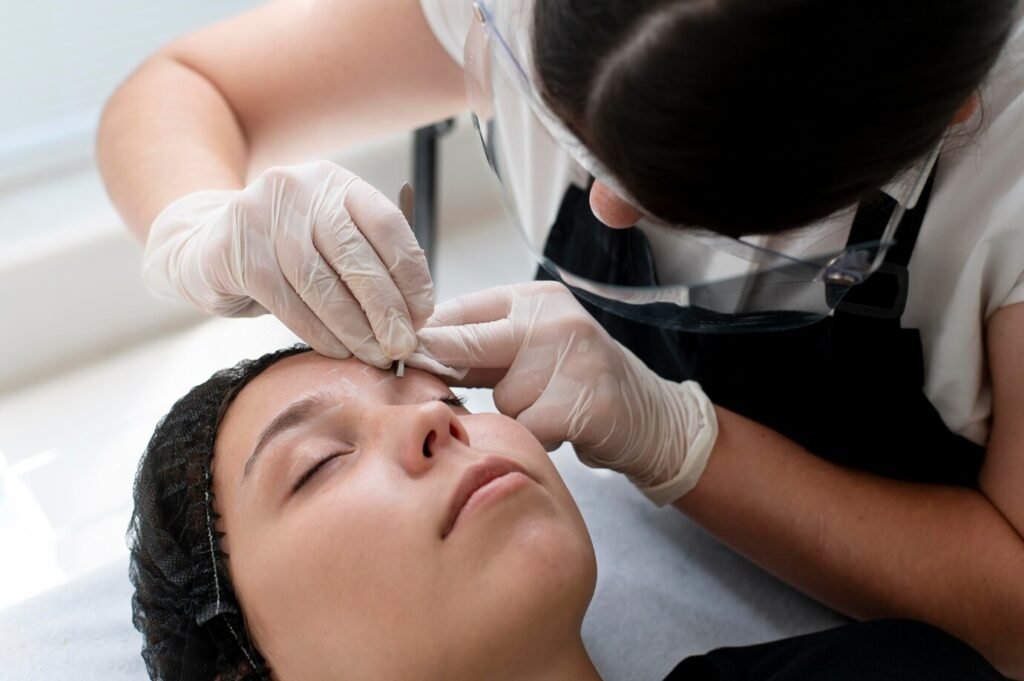Don’t Let Unexpected Fees Catch You Off Guard
Double eyelid surgery in Korea is known for high-quality results, skilled surgeons, and relatively affordable prices. But while many clinics advertise appealing base prices, patients—especially international ones—can sometimes be surprised by hidden or optional costs not included in the initial quote.
Here’s a detailed breakdown of hidden costs you should be aware of before booking your procedure in Korea, and how to prepare for a truly transparent and cost-effective experience.
💵 1. Consultation Fees (Sometimes Charged Separately)
Many clinics in Korea offer free consultations, especially for international patients. However, some high-end or specialist clinics may charge ₩20,000 to ₩100,000 ($15–$75) for:
- Digital 3D simulations
- Detailed functional eyelid assessments
- Second or revision consultations
✅ Tip: Ask in advance if the consultation is free or deductible from the final procedure cost.
🧪 2. Pre-Operative Medical Tests
Before surgery, most clinics require basic health screening, which could include:
- Blood tests
- COVID-19 test (if still required)
- Blood pressure or ECG for patients over 35
Estimated cost: ₩30,000–₩80,000 ($25–$60)
🧑⚕️ These tests are for safety—but they’re often not included in the surgery package.
💊 3. Post-Operative Medication & Supplies
Many clinics do not include the cost of:
- Antibiotics and painkillers
- Eye ointments and drops
- Sterile dressings or scar cream
- Cooling masks or compresses
Estimated cost: ₩20,000–₩70,000 ($15–$55)
🧴 Some top-tier clinics provide these as a recovery kit. Ask what’s included in your package.
✂️ 4. Anesthesia Fees
Double eyelid surgery is typically done under local anesthesia with light sedation, but some clinics charge sedation separately depending on the patient’s request or complexity of the case.
Estimated cost: ₩100,000–₩300,000 ($75–$230)
😴 Ask whether the quoted price includes local anesthesia or if sedation comes at an additional charge.
🔁 5. Optional Add-On Procedures
Your initial consultation may reveal you need or could benefit from additional treatments, such as:
| Add-On Procedure | Typical Cost (USD) |
|---|---|
| Ptosis Correction | $500 – $1,200 |
| Epicanthoplasty (inner corner release) | $400 – $1,000 |
| Lateral Canthoplasty (outer corner widening) | $500 – $1,200 |
| Scar Revision (if previous surgery) | $300 – $800 |
🔍 These are not “hidden” per se—but often not mentioned until the in-person evaluation.
📅 6. Follow-Up Appointments & Aftercare Sessions
Most clinics offer 1–2 free follow-up visits, but extended or additional treatments may come with extra fees, such as:
- Extra check-ups after 1 month or 3 months
- LED light therapy for faster healing
- Lymphatic massage
- Steroid injections (if swelling persists)
Estimated cost per session: ₩30,000–₩100,000 ($25–$75)
💡 Premium clinics may include LED therapy and scar treatments—but always confirm beforehand.
📷 7. Before/After Photo Fees or Image Requests
While clinics usually take before/after photos for internal use, some charge if you request professional copies for personal or promotional use.
Estimated cost: ₩20,000–₩50,000 ($15–$40)
📸 Always clarify if personal access to photos is free.
🏨 8. Travel & Accommodation Costs
While not billed by the clinic, it’s essential to factor in full travel expenses, such as:
| Item | Cost Estimate (USD) |
|---|---|
| Hotel (3–4 stars, 5 nights) | $300 – $600 |
| Round-trip flight | $400 – $900 |
| Local transportation | $50 – $100 |
| Meals & daily needs | $150 – $250 |
✈️ Some clinics offer all-inclusive medical tourism packages, which can be cost-saving.
🌐 9. Interpreter or Coordinator Fees
Most popular clinics provide free multilingual coordinators (English, Mandarin, Japanese). However, smaller or lower-cost clinics may charge for:
- Interpreter services
- Travel arrangements
- Document translations
Interpreter fees (if charged): ₩50,000 – ₩150,000 per day ($40 – $115)
💳 10. Payment Method Surcharges
Some clinics may apply a 3–5% fee for payment via:
- International credit cards
- PayPal
- Wire transfer
🏦 Cash (KRW) payment is often encouraged and may come with a small discount.
🧾 Summary: Hidden Costs Checklist
| Item | Estimated Cost (USD) |
|---|---|
| Medical Tests | $25 – $60 |
| Post-op Medications | $15 – $55 |
| Anesthesia (if extra) | $75 – $230 |
| Additional procedures (if needed) | $400 – $1,200+ |
| Aftercare sessions | $25 – $75 per visit |
| Interpreter (if not included) | $40 – $115 per day |
| Credit card surcharge | 3–5% of total bill |
| Travel/accommodation | $600 – $1,200+ |
📝 Final Thoughts
Double eyelid surgery in Korea is not only high-quality but still very cost-effective—if you go in informed. By understanding and preparing for hidden or optional costs, you can confidently plan your aesthetic journey without financial surprises.




